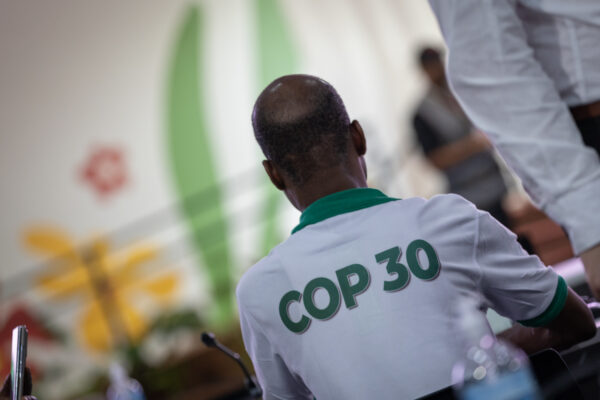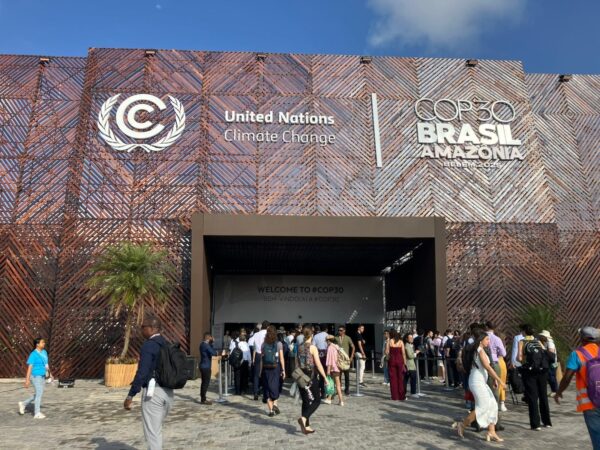China, India slow global emissions growth, Trump’s polices will flatten US emissions
Share

(full briefing / table on the effect of the Trump Administration on emissions / graphic of US emissions under Trump Administration / press conference webcast)
The recent, sweeping policy rollbacks by President Trump are unlikely to have a major impact on global emissions by 2030, according to the CAT analysis on China, India, and the US, released at the Bonn climate talks.
“The highly adverse rollbacks of US climate policies by the Trump Administration, if fully implemented and not compensated by other actors, are projected to flatten US emissions instead of continuing on a downward trend,” said Prof Niklas Höhne, of NewClimate Institute.

Meanwhile, both China and India are set to overachieve their Paris Agreement climate pledges. China’s coal consumption declined over three consecutive years (2013 to 2016), and a continued slow decline is expected. India has stated that its planned coal-fired power plants may not be needed. If the country fully implements recently announced policies, India would see a significant slowing in the growth of CO2 emissions over the next decade.
“Five years ago, the idea of either China or India stopping—or even slowing—coal use was considered an insurmountable hurdle, as coal-fired power plants were thought by many to be necessary to satisfy the energy demands of these countries,” said Bill Hare of Climate Analytics. “Recent observations show they are now on the way toward overcoming this challenge.”
The positive developments in India and China significantly outweigh the potentially negative effects on emissions from the Trump Administration’s proposed rollbacks in the US, estimated at around 0.4 GtCO2 by 2030.
“In the last ten years, the energy market has transformed: The price of renewable energy from wind and solar has dropped drastically,” said Yvonne Deng of Ecofys, a Navigant company. “Renewables are now cost-competitive and being built at a much faster rate than coal-fired power plants.”
The Trump Administration remains undecided on its overall position on the Paris Agreement. A reduction of its Nationally Determined Contribution (NDC)—or a complete withdrawal from the Paris Agreement—would contradict the spirit and the need of the Paris Agreement to increase climate action.
If the CAT were to rate the current policies of the Trump Administration as an NDC, it would move it from “Medium” to “Inadequate” on its rating scale.
Detailed country analyses
USA
China
India
The Climate Action Tracker (CAT) is an independent scientific analysis that measures government climate action against the globally agreed aim of holding warming well below 2°C, and pursuing efforts to limit warming to 1.5°C.
It is a joint project of the following organisations:
Climate Analytics
Climate Analytics is a non-profit organisation based in Berlin, Germany, with offices in Lomé, Togo and New York, USA, that brings together inter-disciplinary expertise in the scientific and policy aspects of climate change. Its activities include: synthesising and advancing scientific knowledge in the area of climate change science, policy and impacts; providing science and policy support to the Least Developed Countries and Small Island Developing States in international climate negotiations, and the tracking and analysing the effectiveness of national climate policies globally.
Ecofys – Experts in Energy
Ecofys, a Navigant company, is a leading international energy and climate consultancy focused on sustainable energy for everyone. Founded in 1984, the company is a trusted advisor to governments, corporations, NGOs, and energy providers worldwide. The team delivers powerful results in the energy and climate transition sectors. Working across the entire energy value chain, Ecofys develops innovative solutions and strategies to support its clients in enabling the energy transition and working through the challenges of climate change.
NewClimate Institute
NewClimate Institute is a non-profit institute established in 2014. NewClimate Institute supports research and implementation of action against climate change around the globe, covering the topics international climate negotiations, tracking climate action, climate and development, climate finance and carbon market mechanisms. NewClimate Institute aims at connecting up-to-date research with the real world decision making processes.











